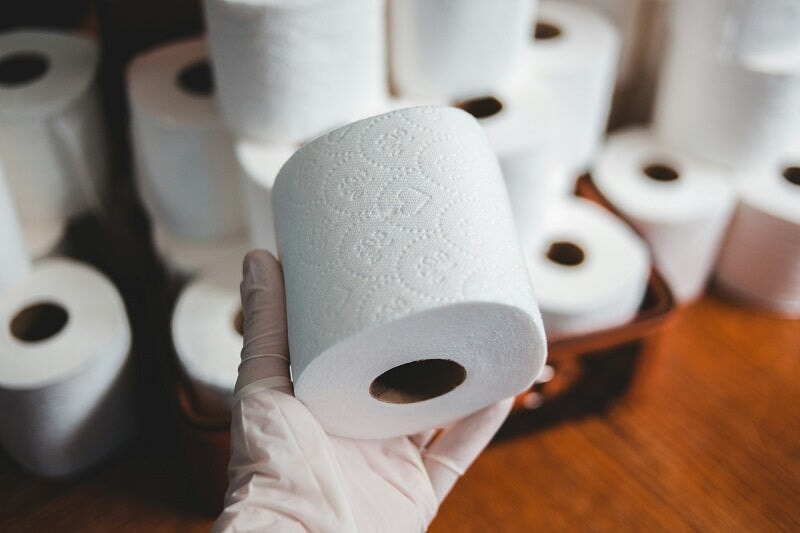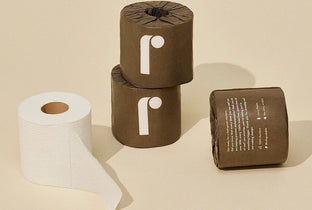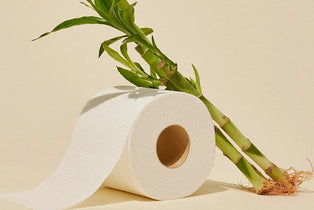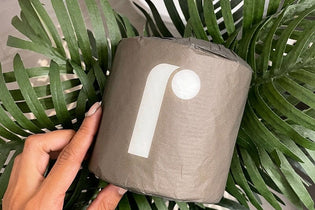
TLDR
Toilet paper is a staple in our daily lives, but have you ever stopped to consider what’s actually in it? Did you also ever ask, “Is toilet paper bad for you?”
While it seems harmless, conventional toilet paper may not be as safe as you think. This article discusses the hidden chemicals in traditional toilet paper, the potential health implications, and why bamboo toilet paper could be the healthier, eco-friendly alternative you’ve been looking for.
Hidden Chemicals in Conventional Toilet Paper
When you pick up a roll of toilet paper, you likely don’t think twice about its composition. However, conventional toilet paper often contains a slew of hidden chemicals that can be harmful to your health. These chemicals are often used in the manufacturing process to improve the look, feel, and functionality of the paper, but at what cost?
Bleaching Agents
One of the primary concerns with traditional toilet paper is the use of bleaching agents. Many brands use chlorine bleach during the production process to whiten the paper.1 This bleaching process can create toxic chemicals, including dioxins, which are known to be harmful to both humans and the environment. Exposure to dioxins has been linked to a range of health issues, from skin irritations to more serious long-term effects.
Moreover, the environmental impact of these chemicals is extensive, as they can contaminate water sources and soil, affecting wildlife and ecosystems. The presence of dioxins in the environment is particularly troubling because these chemicals are incredibly persistent. Once released, they can remain in the soil and water for years, continuing to pose a risk to human and animal health.
At Reel Paper, we whiten our 100% bamboo toilet paper rolls using elemental chlorine-free (ECF) technology, a method that avoids the use of elemental chlorine in the bleaching process. In the U.S., the Environmental Protection Agency (EPA) recognizes ECF bleaching as the "Best Available Technology" for bleaching paper products.
Additives and Fragrances
To make toilet paper softer, stronger, or more fragrant, manufacturers often add various chemicals and fragrances. These additives can include formaldehyde, a known carcinogen, and other harsh chemicals that can cause skin irritation and allergic reactions. For those with sensitive skin, these additives can exacerbate issues and lead to discomfort and health problems.
Per- and Polyfluoroalkyl Substances (PFAS)
PFAS, commonly referred to as “forever chemicals,” are another hidden danger in some conventional toilet papers.2 These substances are used to make products resistant to water, grease, and stains. However, PFAS exposure has been linked to serious health concerns, including cancer, liver damage, and immune system disruption.
The presence of PFAS in toilet paper means that these harmful chemicals can come into direct contact with sensitive areas of your body. Considering that these substances are incredibly persistent in the environment and in the human body, their impact can be long-lasting and detrimental.
Once they enter the environment, they can remain for decades, accumulating in soil, water, and living organisms.3 Luckily, Reel Paper's bamboo toilet paper is the best toilet paper for sensitive skin, completely PFAS-free, ensuring a safer, healthier choice for both you and the environment.
Health Implications of Using Traditional Toilet Paper
The chemicals found in conventional toilet paper don’t just stay on the paper; they can transfer to your skin and enter your body, leading to various health issues. This section explores some of the specific health risks associated with traditional toilet paper usage.
Skin Irritation and Allergies
The additives and fragrances in traditional toilet paper can cause skin irritation and allergic reactions, especially for those with sensitive skin.4 Symptoms can range from mild discomfort and redness to severe itching and rashes. Long-term use of such products can lead to chronic skin conditions that are difficult to manage. Moreover, constant exposure to these chemicals can weaken the skin's natural barrier, making it more susceptible to infections and other dermatological issues.
For individuals with pre-existing skin conditions, such as eczema or psoriasis, the some toilet paper can worsen their symptoms. The harsh chemicals and fragrances can trigger flare-ups and make it more challenging to manage these conditions. Moreover, children and the elderly, who often have more delicate skin, are at a higher risk of experiencing adverse reactions to the chemicals found in traditional toilet paper. This highlights the importance of choosing non-toxic toilet paper options that are gentle on the skin.
Long-term Health Risks
Beyond immediate skin issues, the long-term health risks associated with the chemicals in conventional toilet paper are alarming. Dioxins and PFAS exposure have been linked to serious conditions such as cancer, hormonal disruptions, and reproductive issues. The cumulative effect of these toxins in your body can pose significant health risks over time, making the switch to non-toxic toilet paper a critical consideration. Additionally, there are concerns about the potential for these chemicals to interfere with the body's endocrine system, leading to various hormonal imbalances and related health problems.
Environmental Impact of Conventional Toilet Paper
The production and use of conventional toilet paper also have significant environmental repercussions that are often overlooked. These impacts not only affect the planet but also contribute to a cycle of environmental degradation that can have far-reaching consequences.
Deforestation
Traditional toilet paper is typically made from virgin wood pulp, contributing to deforestation. The demand for paper products drives the destruction of forests, which are vital for maintaining biodiversity and combating climate change. The loss of forests also affects indigenous communities and wildlife that depend on these ecosystems.
Chemical Pollution
The chemicals used in toilet paper production, such as chlorine bleach and PFAS, contribute to environmental pollution. These substances can contaminate waterways during manufacturing and through wastewater when toilet paper is flushed. The resulting pollution can affect drinking water sources and harm aquatic life, creating a cascade of ecological problems.
Waste Generation
The production of conventional toilet paper generates a considerable amount of waste, including wood chips, bark, and other byproducts of the pulping process. Additionally, the chemicals used in bleaching and other processing stages can create hazardous waste that must be carefully managed to prevent environmental contamination.
The disposal of used toilet paper also contributes to waste management challenges, particularly in areas with inadequate sewage and wastewater treatment infrastructure. A common question that arises in this context is: is it better to flush or throw away toilet paper? The answer largely depends on the local sewage and waste management systems.

Bamboo Toilet Paper: A Safe and Sustainable Alternative
Given the health and environmental concerns associated with conventional toilet paper, bamboo toilet paper emerges as a safer and more sustainable option. It also does not need harsh chemicals for processing, making bamboo toilet paper a non-toxic choice that is gentle on your skin and the planet. Moreover, bamboo is a highly renewable resource, often growing upwards of three feet in just 24 hours, which makes it an incredibly sustainable material for producing household paper products.
Bamboo toilet paper also has a significantly lower environmental footprint compared to traditional wood pulp-based toilet paper. Additionally, bamboo plants have a unique ability to absorb large amounts of carbon dioxide and release oxygen, making them an excellent ally in the fight against climate change.
When you choose bamboo toilet paper, you are not only opting for a product that is better for your health, but you are also making a conscious decision to support sustainable practices.
Switch to Reel Paper for a Healthier, Eco-friendly Choice
At Reel Paper, we believe in offering a solution that prioritizes your health and the environment. Our bamboo toilet paper is free from harmful chemicals and additives, ensuring a safer option for you and your family. It’s not just about what’s absent from our paper; it’s about what’s present—a commitment to sustainability and compassion.
Switching to Reel Paper means choosing a product that is septic-safe, eco-friendly, and gentle on sensitive skin. Join us in making a positive impact on your health and the environment by opting for a better alternative. Make the switch today for a healthier tomorrow.
Sources:
- American Forest and Paper Association. Facts About the Use of Bleaching Agents in Tissue and Paper Towel Manufacturing. https://www.afandpa.org/sites/default/files/2023-02/FactsAboutBleachingAgents.pdf
- The Guardian. Toxic ‘forever chemicals’ found in toilet paper around the world. https://www.theguardian.com/environment/2023/mar/13/toxic-forever-chemicals-pfas-toilet-paper
- The Frontier Group. The real problem with toilet paper: Where it comes from. https://frontiergroup.org/articles/real-problem-toilet-paper-where-it-comes/
- College of Naturopathic Medicine. Is Your Toilet Paper Toxic?. https://www.naturopathy-uk.com/news/blog/2023/01/13/is-your-toilet-paper-toxic/





0 comments